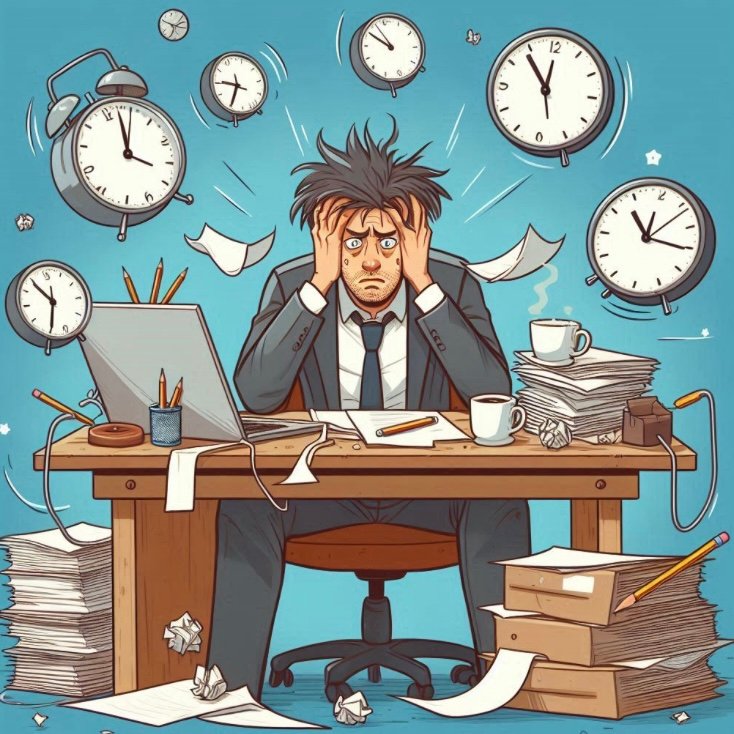
Usually when I come back from a trip, I try to take an extra day off. It's my buffer day, the one I need to recover some energy after the trip, relieve any jet lag, or even just reduce the trauma of the return.
This round was not possible for me. I immediately returned to the office and waiting for me there were already some deadlines ready to be met.
The ten days before the holidays were a race to close the deadlines before leaving, the ten days after the return are a race to close the deadlines of the return.
It doesn't matter what you do, where you go, how much vacation you take, you know that when you get back you'll have to run.
A colleague, for a period of her life, did not go on vacation for more than a week at a time, precisely to avoid generating this frenzy effect on her return. Now I wonder, but does it seem normal to you?
It's okay to work, periods when there is intense labour activity are fine, but if this thing becomes the norm, then there is a problem. If everything is urgent, then nothing is urgent.
You have to prioritise and realise that more frantic rhythms cause errors or inaccuracies.
Not only that, what's the point of going on vacation to recover physical strength and mental energy if these are squeezed immediately when you return?
I think many of the work/rest alternation dynamics should be reviewed a bit. Everyone would gain from it, both workers and companies. When can a satisfied and fresh employee be more productive who performs his work diligently in time without care?
I needed to vent a little.

Solitamente quando rientro da un viaggio, cerco di prendermi un giorno di ferie extra. È il mio giorno cuscinetto, quello che serve per recuperare un po’ le energie dopo il viaggio, alleviare l’eventuale jet lag, o anche solo ridurre il trauma del rientro.
A questo giro non mi è stato possibile. Sono rientrato subito in ufficio e ad attendermi c’erano già belle pronte delle scadenze da smaltire.
I dieci giorni prima delle ferie sono state una corsa per chiudere le scadenze prima di partire, i dieci giorni dopo il rientro sono una corsa per chiudere le scadenze del rientro.
Non importa cosa fai, dove vai, quanto fai di ferie, sai che al rientro dovrai correre.
Una collega, per un periodo della propria vita, non andava in ferie per più di una settimana alla volta, proprio per evitare che si generasse questo effetto di frenesia al rientro. Ora io mi chiedo, ma vi sembra normale?
Va bene lavorare, vanno bene i periodi in cui c’è una intensa attività di lavoro, ma se questa cosa diventa la norma, allora c’è un problema. Se tutto è urgente, allora nulla è urgente.
Bisogna dare delle priorità e rendersi conto che ritmi più frenetici causano errori o imprecisioni.
Non solo, che senso ha andare in ferie per recuperare forza fisica ed energie mentali se poi queste vengono spremute subito al rientro?
Credo che molte delle dinamiche di alternanza lavoro/riposo andrebbero un po’ riviste. Ne guadagnerebbero tutti, sia i lavoratori che le imprese. Quando può essere più produttivo un dipendente soddisfatto e fresco che esegue il proprio lavoro con diligenza nei tempi senza affanni?
Avevo bisogno di sfogarmi un po’.
Posted Using InLeo Alpha
